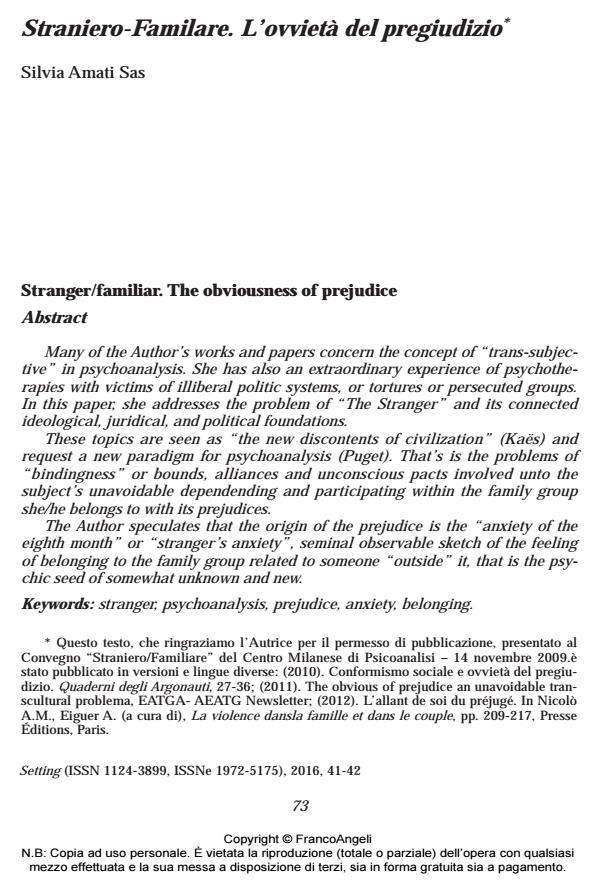Straniero-Familare. L’ovvietà del pregiudizio
Journal title SETTING
Author/s Silvia Amati Sas
Publishing Year 2018 Issue 2016/41-42
Language Italian Pages 14 P. 73-86 File size 434 KB
DOI 10.3280/SET2016-041002
DOI is like a bar code for intellectual property: to have more infomation
click here
Below, you can see the article first page
If you want to buy this article in PDF format, you can do it, following the instructions to buy download credits

FrancoAngeli is member of Publishers International Linking Association, Inc (PILA), a not-for-profit association which run the CrossRef service enabling links to and from online scholarly content.
Stranger/familiar. The obviousness of prejudice Abstract Many of the Author’s works and papers concern the concept of "trans-subjective" in psychoanalysis. She has also an extraordinary experience of psychotherapies with victims of illiberal politic systems, or tortures or persecuted groups. In this paper, she addresses the problem of "The Stranger" and its connected ideological, juridical, and political foundations. These topics are seen as "the new discontents of civilization" (Kaës) and request a new paradigm for psychoanalysis (Puget). That’s is the problems of "bindingness" or bounds, alliances and unconscious pacts involved unto the subject’s unavoidable dependending and participating within the family group she/he belongs to with its prejudices. The Author speculates that the origin of the prejudice is the "anxiety of the eighth month" or "stranger’s anxiety", seminal observable sketch of the feeling of belonging to the family group related to someone "outside" it, that is the psychic seed of somewhat unknown and new.
Keywords: Stranger, psychoanalysis, prejudice, anxiety, belonging.
Silvia Amati Sas, Straniero-Familare. L’ovvietà del pregiudizio in "SETTING" 41-42/2016, pp 73-86, DOI: 10.3280/SET2016-041002